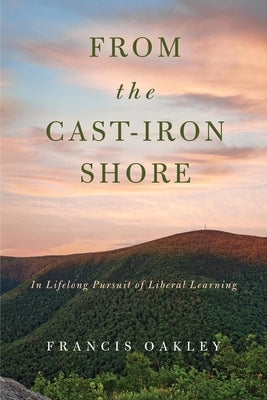Before you leave...
Take 20% off your first order
20% off
Enter the code below at checkout to get 20% off your first order
Discover summer reading lists for all ages & interests!
Find Your Next Read

From the Cast-Iron Shore is part personal memoir and part participant-observer's educational history. As president emeritus at Williams College in Massachusetts, Francis Oakley details its progression from a fraternity-dominated institution in the 1950s to the leading liberal arts college it is today, as ranked by U.S. News and World Report.
Oakley's own life frames this transformation. He talks of growing up in England, Ireland, and Canada, and his time as a soldier in the British Army, followed by his years as a student at Yale University. As an adult, Oakley's provocative writings on church authority stimulated controversy among Catholic scholars in the years after Vatican II. A Fellow of the American Academy of Arts and Sciences and the Medieval Academy of America, and an Honorary Fellow of Corpus Christi College, Oxford, he has written extensively on medieval intellectual and religious life and on American higher education.
Oakley combines this account of his life with reflections on social class, the relationship between teaching and research, the shape of American higher education, and the challenge of educational leadership in the late twentieth and early twenty-first century. The book is an account of the life of a scholar who has made a deep impact on his historical field, his institution, his nation, and his church, and will be of significant appeal to administrators of liberal arts colleges and universities, historians, medievalists, classicists, and British and American academics.
Francis Oakley is the Edward Dorr Griffin Professor of the History of Ideas Emeritus, and president emeritus of Williams College. He is also president emeritus of the American Council of Learned Societies, New York. He is the author and editor of numerous books, including The Watershed of Modern Politics: Law, Virtue, Kingship and Consent (1300 to 1650) and The Mortgage of the Past: Reshaping the Ancient Political Inheritance (1050 to 1300).
Thanks for subscribing!
This email has been registered!
Take 20% off your first order
Enter the code below at checkout to get 20% off your first order